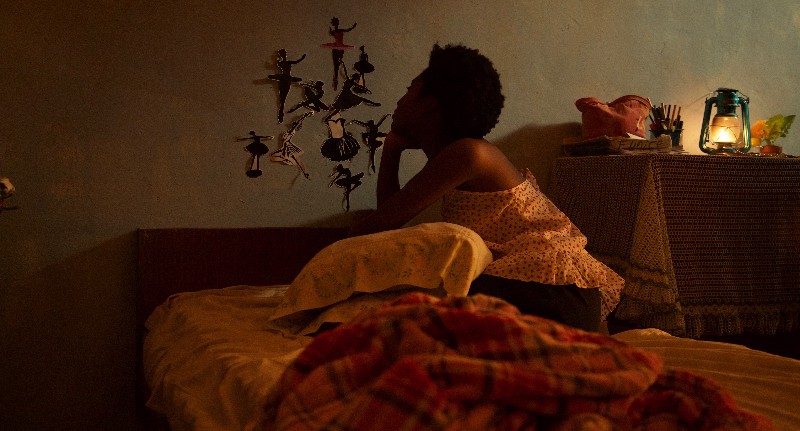Leila Djansi began her directing career while still studying at the ArtCenter College of Art and Design. Her directorial debut “I Sing of a Well” netted an unprecedented 11 nominations at the 2010 African Academy Awards, winning the Jury Special Award for Best Film. In 2015, Djansi released “Where Children Play,” which stars Grammy-winner Macy Gray. Her other credits include “And Then There Was You” and “Sinking Sands.”
“Like Cotton Twines” will premiere at the 2016 LA Film Festival on June 2.
W&H: Describe the film for us in your own words.
LD: “Like Cotton Twines” is the story of Tugi (Ophelia Dzidzornu), a 14-year-old girl who is forced to become Trokosi, a slave in a fetish shrine, and the African-American teacher, Micah (Jay Ellis), who tries to rescue her. It is an exploration of a returnee’s reaction to modern day slavery.
W&H: What drew you to this story?
LD: I first experienced a Trokosi woman when I was 10 years old in Ghana. Even at that young age, I could tell she looked lost and had given up on life. She had a baby with her and he didn’t look any better. Years later, I experienced a group of Trokosis at a funeral in Ghana and again, their eyes held such hollowness, I knew I had to tell their story. Being that it is voodoo/religion, not a lot of Ghanaians or Africans want to touch such subjects for fear of spiritual and societal repercussions.
W&H: What do you want people to think about when they are leaving the theater?
LD: Well, first and foremost, that there are other stories to be told about Africa that are not all about war, poverty, and strife. There are stories of brave women and brave men who, regardless of the situations in which they find themselves, are able to rise above and make a difference.
I’d also like people to discover the history and practice of slavery and collectively lend their voices to its abolishment.
W&H: What was the biggest challenge in making the film?
LD: The budget. This has been my most ambitious film yet. To take a crew and cast from the United States to Ghana, and to build sets from scratch for the budget we had is nothing short of amazing. American crews work differently from Ghanaian crews so to get both groups to be in sync was another challenge. It was hard, but it was worth it.
W&H: How did you get your film funded? Share some insights into how you got the film made.
LD: I think I am one of the lucky few who have a couple of investors who believe in my artistic voice. When I find a project, I pitch them and if they believe in it, they go with me all the way.
W&H: What’s the best and worst advice you’ve received?
LD: The best advice I’ve ever received was “Just keep singing, if the world likes your song, they’ll sing with you.” So that’s what I do. I keep working, trying to get better with every project.
[As for the worst advice,] I choose not remember some. Not that I haven’t gotten any. I remember at Cannes in 2011, a sales agent said to stop making black, or African, films because there’s no market for them. I am black, African — whose story should I tell then? You get a lot of naysayers in this business. If my heart doesn’t believe what you’ve told me, I block it out and move on. I try to keep only positive energies around me.
W&H: What advice do you have for other female directors?
LD: Rise above the odds. Tell stories that enhance the lives of your fellow women. Above all, the times when we run ahead of each other are past — now is the time to run together. There’s no point being in competition with each other in a patriarchy. Look for a fellow female filmmaker next to you: take her hand and run together.
W&H: Name your favorite woman-directed film and why.
LD: Anything by Mira Nair is my favorite. She is the reason I abandoned medicine for filmmaking. One of her films ,“The Laughing Club of India,” is one of my favorites. Imagine that there is a club where you go to laugh. That she’d even want to make a movie about that is commendable in itself. The circumstances in which some members of the club found themselves was extreme poverty to illness, yet they found a reason to laugh. That is very inspiring. It was a brilliant juxtaposition.







